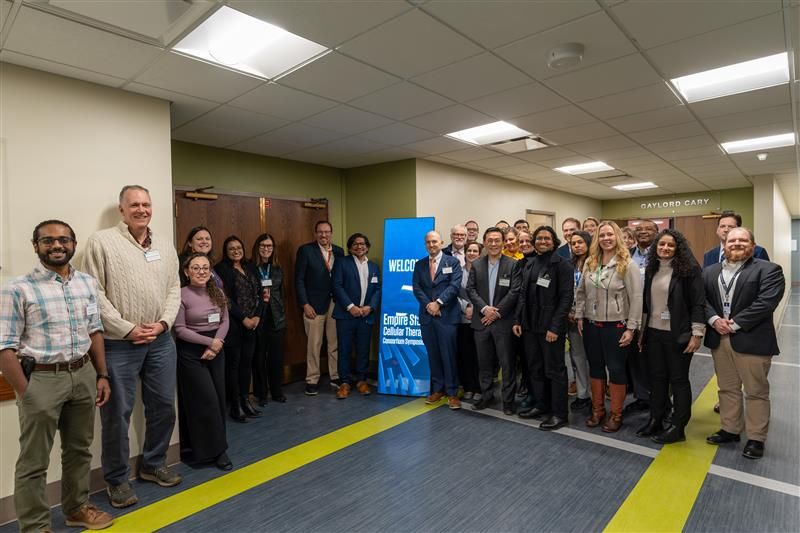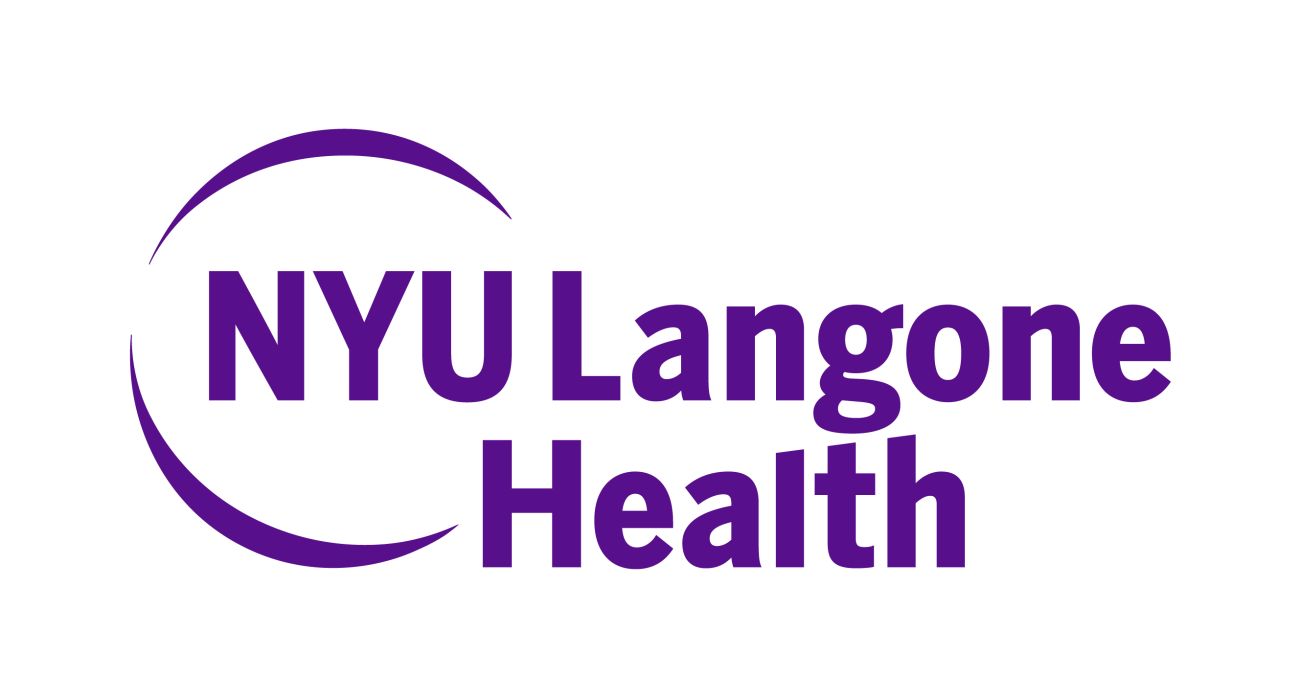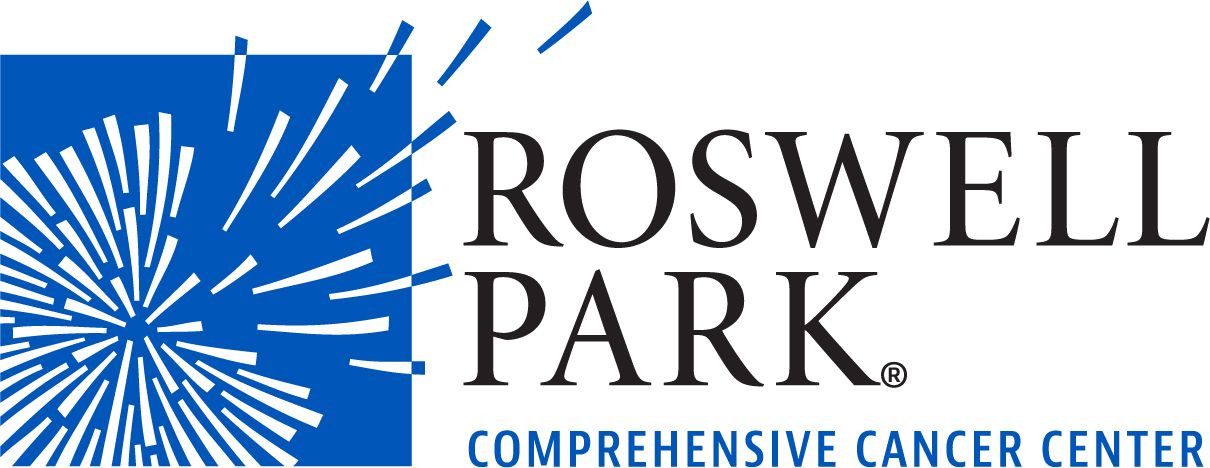Experts in newest treatment option for cancer, neurological disorders unite to speed progress, expand access
- Consortium members will share resources, collaborate on clinical trials
- Statewide experts look to expand benefits of cell therapy to more patients
- Roswell Park’s Dr. Marco Davila is inaugural Chair of statewide group
BUFFALO, ROCHESTER and NEW YORK, N.Y. — To expand on early progress in the emerging field of cell and gene therapy, five research centers across New York State are collaborating to develop new cell therapies for cancer and other diseases. Roswell Park Comprehensive Cancer Center in Buffalo, the University of Rochester Wilmot Cancer Institute in Rochester and three academic research centers in New York City — The Icahn School of Medicine at Mount Sinai, NYU Langone Health and Weill Cornell Medicine — have partnered to launch the Empire State Cellular Therapy Consortium.
Member centers will have expanded access to resources across the network, including Roswell Park’s 20-clean-room GMP Engineering & Cell Manufacturing Facility, and the ability to participate in clinical trials originating out of any of the five member sites — paving the way for faster progress and earlier, more convenient access to innovative therapies for patients.
“A partnership like this opens the doors to accelerating research, bringing innovative treatments from bench to bedside much faster. By combining our resources, we can learn from one another, strengthening our efforts to bring new and better options to patients,” says Consortium co-founder Marco Davila, MD, PhD, Roswell Park Senior Vice President, Associate Director of Translational Research and Rustum Family Endowed Chair in Translational Research.
Part of the broad class of biologic treatments known as immunotherapy, cell and gene therapies harness the body’s own immune system to fight disease. Over the past two years, 15 new cell and gene therapies have been approved by the U.S. FDA, bringing the total number of approvals of this type of biologic therapy using patients’ own cells to 45.
Cell and gene therapies have demonstrated marked success as treatment for blood cancers, generating long-term remissions and cures in both adults and children, and cell-based approaches have been FDA-approved to treat forms of leukemia, lymphoma and multiple myeloma as well as the genetic blood disorder sickle cell disease. Experts are now looking at ways to broaden the application of cell therapies to include “solid-tumor” cancers in organs like the breast, ovaries, lung and pancreas — and to treat other noncancerous conditions, including neurodegenerative, autoimmune and metabolic diseases such as multiple sclerosis, lupus and diabetes.
Consortium members expect to open several clinical trials within the next two years, offering earlier to state-of-the-art medical treatments not available outside this pioneering Empire State network, and will also collaborate to expand patients’ access to standard-of-care cell therapies already approved by the FDA.
“At Mount Sinai, we are committed to advancing cell and gene therapies that offer curative potential for patients with both malignant and nonmalignant diseases,” says Keren Osman, MD, Medical Director of the Cellular Therapy Service and Associate Professor of Hematology and Medical Oncology at the Icahn School of Medicine at Mount Sinai. “The Empire State Cellular Therapy Consortium provides a powerful framework for collaboration, allowing us to scale innovation, streamline access to trials, and bring the promise of these transformative therapies to more patients across New York.”
“We are thrilled to be part of the Empire State Cellular Therapy Consortium. I have no doubt that, with the collective efforts of its members, this consortium will serve as a driving force for cutting-edge cell and gene therapy,” says Jingmei Hsu, MD, a physician and faculty member with the hematology group at NYU Langone’s Perlmutter Cancer Center who is also Cell Therapy Trial Review Committee Chair and Director of the Cell Processing Laboratory at NYU.
“Collaboration on this level is so important because it will bring about efficiency as we make faster progress toward new, innovative treatments to benefit our patients,” says Patrick Reagan, MD, Associate Professor of Hematology/Oncology at the UR and Director of Wilmot Cancer Institute’s Stem Cell Transplant and Cellular Therapy program. “The consortium also provides a lot of opportunity for basic scientists and junior investigators and trainees to learn by having access to this cutting-edge facility and a large team.”
“The consortium is a unique collaboration to bring cell and gene therapies to patients across the state of New York. By partnering and streamlining manufacturing, we hope to integrate state-of-the-art cell therapy clinical trials and share important clinical data across numerous centers, ultimately improving access to curative therapies for patients with a wide range of cancers and blood disorders,” says Samuel Yamshon, MD, Assistant Professor of Medicine at Weill Cornell Medicine and Director of Cell Therapy Service at Weill Cornell Medicine and NewYork-Presbyterian/Weill Cornell Medical Center. “We are very excited to partner with the Consortium and also leverage the excellence in laboratory science, clinical translation and clinical research at Weill Cornell Medicine to rapidly expand access to breakthrough therapies for our patients,” says Dr. Juliet Barker, Professor of Medicine at Weill Cornell Medicine and Director of Bone Marrow Transplant and Cell Therapy at Weill Cornell Medicine and NewYork-Presbyterian/Weill Cornell Medical Center.
“We’re excited about the opportunity to make full use of the resources and expertise embedded within these outstanding teams across New York State,” says cell therapy pioneer and Consortium co-founder Renier Brentjens, MD, PhD, Roswell Park Deputy Director and The Katherine Anne Gioia Endowed Chair in Cancer Medicine at Roswell Park, who helped develop the first cancer treatments employing a strategy known as CAR T-cell therapy. “The ideas and innovation coming out of these five centers are remarkable, and stem from our shared commitment to providing more and better options for patients with hard-to-treat diseases.”
The consortium was launched with a February 2025 symposium at Roswell Park featuring speakers from all five member organizations. Dr. Davila will serve as the Empire State Cellular Therapy Consortium’s inaugural Chair — a position that will rotate across all member institutions.
The newly expanded Roswell Park GMP Engineering & Cell Manufacturing Facility, announced by Gov. Kathy Hochul in late 2024 and supported by a $30 million investment from Empire State Development and by a $20 million commitment from the Roswell Park Alliance Foundation, is the first of two New York State hubs supporting cell therapy manufacturing, research and clinical development. All Consortium members will have preferential access to its services and team.
For more information about cell and gene therapy at each consortium member site, see:
Mount Sinai Tisch Cancer Center Cell Therapy Service (New York, NY)
Blood and Marrow Transplantation and Cellular Therapy Center at NYU Langone Health (New York, NY)
Cell and gene therapy at Roswell Park Comprehensive Cancer Center (Buffalo, NY)
Stem Cell Transplant and Cellular Therapy Program at the University of Rochester Wilmot Cancer Institute (Rochester, NY)
Bone Marrow Transplant and Cell Therapy Program at Weill-Cornell Medicine (New York, NY)
###
About Roswell Park
From the world’s first chemotherapy research to the PSA prostate cancer biomarker, Roswell Park Comprehensive Cancer Center generates innovations that shape how cancer is detected, treated and prevented worldwide. Driven to eliminate cancer’s grip on humanity, the Roswell Park team of 4,000 makes compassionate, patient-centered cancer care and services accessible across New York State and beyond. Founded in 1898, Roswell Park was among the first three cancer centers nationwide to become a National Cancer Institute-designated comprehensive cancer center and is the only one to hold this designation in Upstate New York. To learn more about Roswell Park Comprehensive Cancer Center and the Roswell Park Care Network, visit www.roswellpark.org, call 1-800-ROSWELL (1-800-767-9355) or email ASKRoswell@RoswellPark.org.
About the Icahn School of Medicine at Mount Sinai
The Icahn School of Medicine at Mount Sinai is internationally renowned for its outstanding research, educational, and clinical care programs. It is the sole academic partner for the seven member hospitals* of the Mount Sinai Health System, one of the largest academic health systems in the United States, providing care to New York City’s large and diverse patient population.
The Icahn School of Medicine at Mount Sinai offers highly competitive MD, PhD, MD-PhD, and master’s degree programs, with enrollment of more than 1,200 students. It has the largest graduate medical education program in the country, with more than 2,600 clinical residents and fellows training throughout the Health System. Its Graduate School of Biomedical Sciences offers 13 degree-granting programs, conducts innovative basic and translational research, and trains more than 560 postdoctoral research fellows.
Ranked 11th nationwide in National Institutes of Health (NIH) funding, the Icahn School of Medicine at Mount Sinai is among the 99th percentile in research dollars per investigator according to the Association of American Medical Colleges. More than 4,500 scientists, educators, and clinicians work within and across dozens of academic departments and multidisciplinary institutes with an emphasis on translational research and therapeutics. Through Mount Sinai Innovation Partners (MSIP), the Health System facilitates the real-world application and commercialization of medical breakthroughs made at Mount Sinai.
* Mount Sinai Health System member hospitals: The Mount Sinai Hospital; Mount Sinai Brooklyn; Mount Sinai Morningside; Mount Sinai Queens; Mount Sinai South Nassau; Mount Sinai West; and New York Eye and Ear Infirmary of Mount Sinai.
About NYU Langone Health
NYU Langone Health is a fully integrated health system that consistently achieves the best patient outcomes through a rigorous focus on quality that has resulted in some of the lowest mortality rates in the nation. Vizient, Inc. has ranked NYU Langone No. 1 out of 115 comprehensive academic medical centers across the nation for three years in a row, and U.S. News & World Report recently placed nine of its clinical specialties among the top five in the nation. NYU Langone offers a comprehensive range of medical services with one high standard of care across 7 inpatient locations, its Perlmutter Cancer Center, and more than 320 outpatient locations in the New York area and Florida. With $14.2 billion in revenue this year, the system also includes two tuition-free medical schools, in Manhattan and on Long Island, and a vast research enterprise.
About the University of Rochester Wilmot Cancer Institute
The University of Rochester Wilmot Cancer Institute is an NCI-Designated Cancer Center located in Rochester, New York. It serves a population of more than three million people across 27 counties in Western and Central New York and is the region’s leader for cancer care and research. As a component of Strong Memorial Hospital, Wilmot Cancer Institute provides specialty cancer care services at the University of Rochester Medical Center and a network of 13 locations throughout the region, including an 88-bed hospital on the campus of the University’s Medical Center. Wilmot includes a team of more than 190 oncology physicians, 500-plus oncology nurses, and approximately 115 scientists who investigate many aspects of cancer. Learn more.
About Weill Cornell Medicine
Weill Cornell Medicine is committed to excellence in patient care, scientific discovery and the education of future physicians in New York City and around the world. The doctors and scientists of Weill Cornell Medicine—faculty from Weill Cornell Medical College, Weill Cornell Graduate School of Medical Sciences, and Weill Cornell Physician Organization—are engaged in world-class clinical care and cutting-edge research that connect patients to the latest treatment innovations and prevention strategies. Located in the heart of the Upper East Side’s scientific corridor, Weill Cornell Medicine’s powerful network of collaborators extends to its parent university Cornell University; to Qatar, where Weill Cornell Medicine-Qatar offers a Cornell University medical degree; and to programs in Tanzania, Haiti, Brazil, Austria and Turkey. Weill Cornell Medicine faculty provide exemplary patient care at NewYork-Presbyterian/Weill Cornell Medical Center, NewYork-Presbyterian Westchester Behavioral Health Center, NewYork-Presbyterian Lower Manhattan Hospital, NewYork-Presbyterian Queens and NewYork-Presbyterian Brooklyn Methodist Hospital. Weill Cornell Medicine is also affiliated with Houston Methodist. For more information, visit weill.cornell.edu.
Annie Deck-Miller, Director of Public Relations
716-845-8593; annie.deck-miller@roswellpark.org





